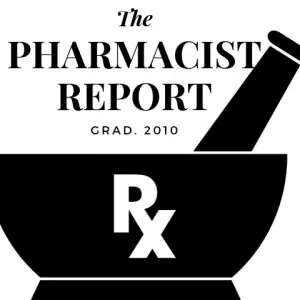Nuclear pharmacy is a specialized area of pharmacy practice that deals with the preparation and dispensing of radioactive materials for use in nuclear medicine procedures. This field requires extensive training and certification as an Authorized User of radiopharmaceuticals, as well as adherence to strict safety protocols to minimize radiation exposure.
Despite working with radioactive materials, nuclear pharmacists play an essential role in providing crucial medication information to healthcare professionals and patients, making it a constantly evolving and challenging field.
The primary objective of nuclear pharmacy is to provide safe and effective radiopharmaceuticals that can be used for diagnostic and therapeutic purposes. This involves understanding the physical and chemical properties of radioactive materials, as well as their applications in clinical settings.
Nuclear pharmacists work closely with nuclear medicine staff, physicians, and patients to ensure that the correct radiopharmaceutical is administered at the appropriate dose, while also minimizing radiation exposure to patients and healthcare personnel.
This article will explore the exciting world of nuclear pharmacy, including the training and certification required, safety and handling protocols, and the challenges and rewards associated with this specialized field.
Training and Certification
Nuclear pharmacists must become Authorized Users of radiopharmaceuticals, which involves completing a rigorous training program and passing a certification exam. The Authorized User process is overseen by the Nuclear Regulatory Commission (NRC) and includes both didactic and hands-on training in radiation safety, radiation biology, and the handling and use of radioactive materials.
Board certification is an option for nuclear pharmacists who have obtained experience in compounding and dispensing radioactive materials for use in nuclear medicine procedures. Board certification requirements include a minimum of 4,000 hours of practice in nuclear pharmacy, as well as passing a comprehensive exam.
Board certification is not required to practice as a nuclear pharmacist, but it is highly regarded and can open up new opportunities for career advancement. In addition to the Authorized User process and board certification, ongoing education and training are essential for nuclear pharmacists to stay current with the rapidly evolving field of nuclear medicine.
Safety and Handling
Radiopharmaceuticals require specific handling techniques that minimize radiation exposure to personnel. Nuclear pharmacists are trained in radiation safety and must comply with federal and state regulations. Protective equipment, such as lead aprons, gloves, and goggles, are worn to minimize radiation exposure. Compounding and dispensing of radiopharmaceuticals are done behind leaded glass shielding, using leaded glass syringe shields and lead containers. Radioactive waste is segregated and disposed of in accordance with regulations, and the pharmacy is monitored regularly for radiation levels.
Nuclear pharmacists also use established protocols to ensure safety when handling radiopharmaceuticals. These protocols include labeling, double-checking, and verifying orders before dispensing, and maintaining accurate records of the use and disposal of radiopharmaceuticals. In addition, the pharmacy team undergoes regular radiation safety training and is equipped with radiation detection devices to monitor exposure levels.
By adhering to strict safety protocols, nuclear pharmacists can minimize the risk of radiation exposure to themselves, their colleagues, and patients, while providing crucial medical services.
Challenges and Rewards
One of the significant challenges facing pharmacists in this specialty is keeping up with the constantly evolving treatments and diagnostic agents. Nuclear pharmacy is a field that is constantly changing with new treatments and diagnostic agents being developed. As such, nuclear pharmacists must remain up-to-date with the latest developments in the field in order to provide the best possible care to their patients. This requires a commitment to lifelong learning and ongoing professional development.
Despite the challenges, nuclear pharmacy can be a very rewarding profession. Nuclear pharmacists play a critical role in patient care, working closely with nuclear medicine staff to ensure that patients receive the right medication at the right time. They also have the opportunity to make a real difference in someone’s life, helping to improve patient outcomes and quality of life.
While work-life balance can be difficult to achieve in this field, many nuclear pharmacists find the rewards of their work to be well worth the effort.
Summary and Conclusion
Nuclear Pharmacy is a specialized area of pharmacy that involves the compounding and dispensing of radioactive materials for use in nuclear medicine procedures. Nuclear pharmacists work closely with nuclear medicine staff to ensure the provision of care for patients undergoing nuclear medicine procedures. They provide vital medication information and require additional training to become authorized users of radiopharmaceuticals. Working in Nuclear Pharmacy requires intensive training in radiation safety, but by using simple techniques, the amount of radiation exposure to the nuclear pharmacist is very low.
Sallie Blair, a Nuclear Pharmacist, discovered Nuclear Pharmacy accidentally and became intrigued by how it differs from traditional pharmacy. She pursued a career in Nuclear Pharmacy and found it challenging, constantly changing, and rewarding. The best advice she was given was to set her goal and stay steady in pursuing it, to go the extra mile, to develop new ideas, and not to be afraid to try something new.
In conclusion, Nuclear Pharmacy is an exciting and challenging field that plays a crucial role in helping patients undergoing nuclear medicine procedures. It requires additional training, intensive radiation safety training, and a willingness to constantly learn and adapt to new treatments and diagnostic agents. Nuclear pharmacists are medication specialists who make a difference in people’s lives and always strive to go the extra mile in their practice.
Frequently Asked Questions
What kind of educational background is required to become a nuclear pharmacist?
Becoming a nuclear pharmacist requires a Doctor of Pharmacy (Pharm.D.) degree and additional training programs to become an Authorized User of radiopharmaceuticals. Board certification is optional after gaining experience in the field.
How do nuclear pharmacists ensure the safety of themselves and others when working with radioactive materials?
Nuclear pharmacists ensure safety through strict adherence to safety protocols including lead shielding, radiation exposure tracking, and proper disposal of radioactive waste. Technical expertise, precise techniques, and analytical skills are integral to safe handling of radioactive materials.
How does the work of a nuclear pharmacist differ from that of a traditional pharmacist?
The work of a nuclear pharmacist differs from that of a traditional pharmacist in the handling of radioactive materials, requiring additional training and emphasis on radiation safety. Lead shielding and specialized equipment are used to minimize radiation exposure.
What kind of new treatments and diagnostic agents are currently being developed in the field of nuclear pharmacy?
New developments in nuclear pharmacy include radiopharmaceuticals for new diagnostic imaging techniques, targeted radiotherapy for cancer treatment, and theranostics for personalized medicine. Future possibilities include advances in molecular imaging and drug delivery systems.
What are some common misconceptions about nuclear pharmacy that you have encountered?
Misconceptions about nuclear pharmacy include radiation exposure, danger to the public, and risks to the environment. A reality check shows that nuclear pharmacists are highly trained professionals who work with safety protocols to minimize risks and provide essential medical services. Stereotypes should be replaced with the truths about this challenging and rewarding career.


